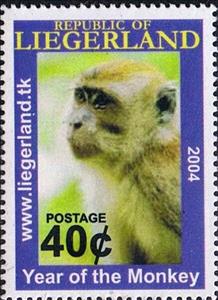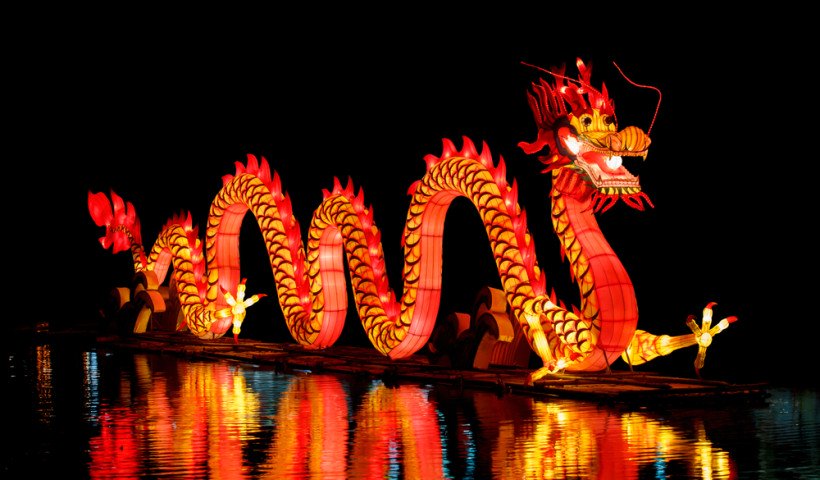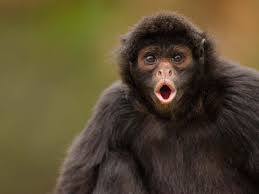Stamp: Year of the Monkey (Cinderellas 2004)
Year of the Monkey (Cinderellas 2004)
23 January (Cinderellas ) within release Liegerland goes into circulation Stamp Year of the Monkey face value 40 Fantasy
| Stamp Year of the Monkey in catalogues | |
|---|---|
| Colnect codes: | Col: LI 2004-01 |
Stamp is square format.
|
Data entry completed
46%
|
|
|---|---|
| Stamp Year of the Monkey in digits | |
| Country: | Cinderellas |
| Date: | 2004-01-23 |
| Emission: | Cinderella |
| Format: | Stamp |
| Face Value: | 40 Fantasy |
Stamp Year of the Monkey it reflects the thematic directions:
Animals are multicellular, eukaryotic organisms of the kingdom Animalia (also called Metazoa). All animals are motile, meaning they can move spontaneously and independently, at some point in their lives. Their body plan eventually becomes fixed as they develop, although some undergo a process of metamorphosis later on in their lives. All animals are heterotrophs: they must ingest other organisms or their products for sustenance.
Chinese New Year or the Spring Festival (see also § Names) is a festival that celebrates the beginning of a new year on the traditional lunisolar Chinese calendar. Marking the end of winter and the beginning of spring, observances traditionally take place from Chinese New Year's Eve, the evening preceding the first day of the year, to the Lantern Festival, held on the 15th day of the year. The first day of Chinese New Year begins on the new moon that appears between 21 January and 20 February
Monkey is a common name that may refer to most mammals of the infraorder Simiiformes, also known as simians. Traditionally, all animals in the group now known as simians are counted as monkeys except the apes. Thus monkeys, in that sense, constitute an incomplete paraphyletic grouping; however, in the broader sense based on cladistics, apes (Hominoidea) are also included, making the terms monkeys and simians synonyms in regard to their scope.



